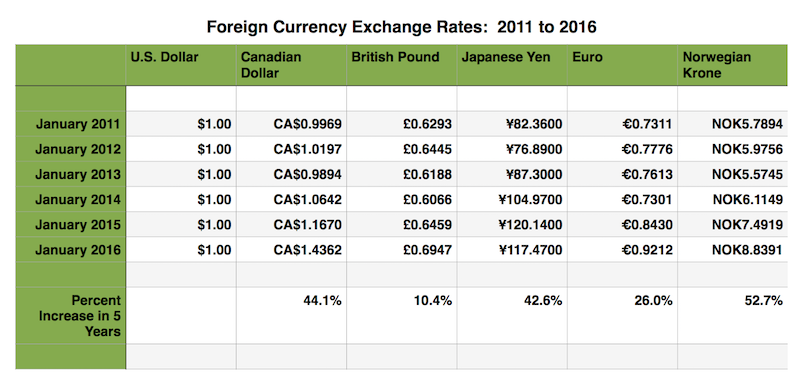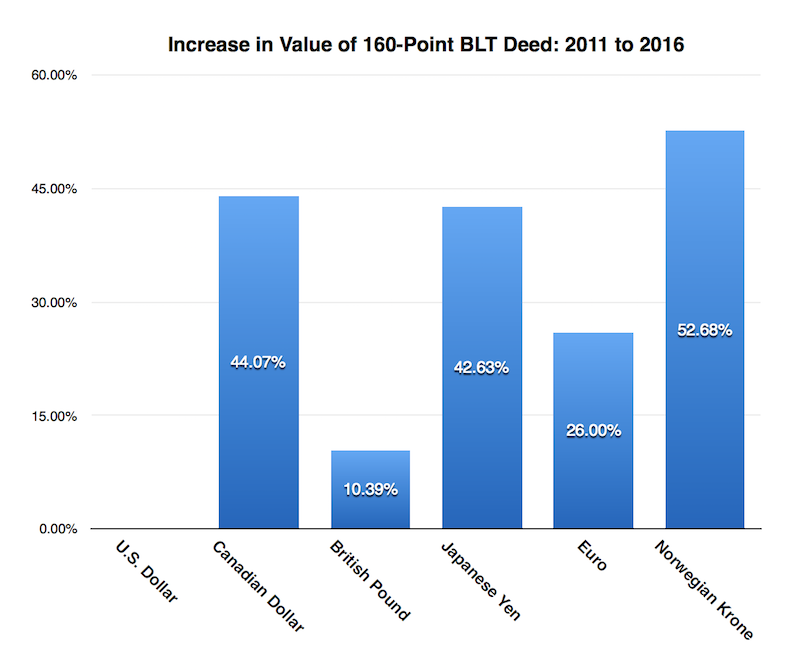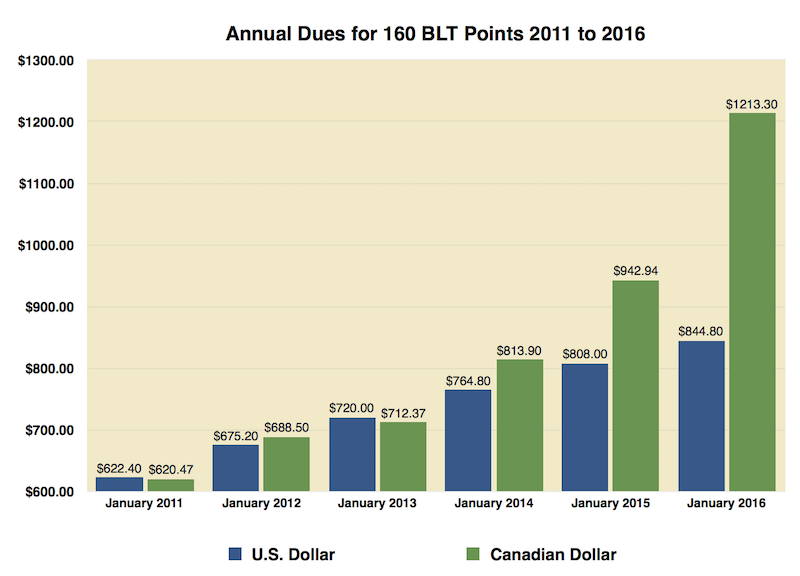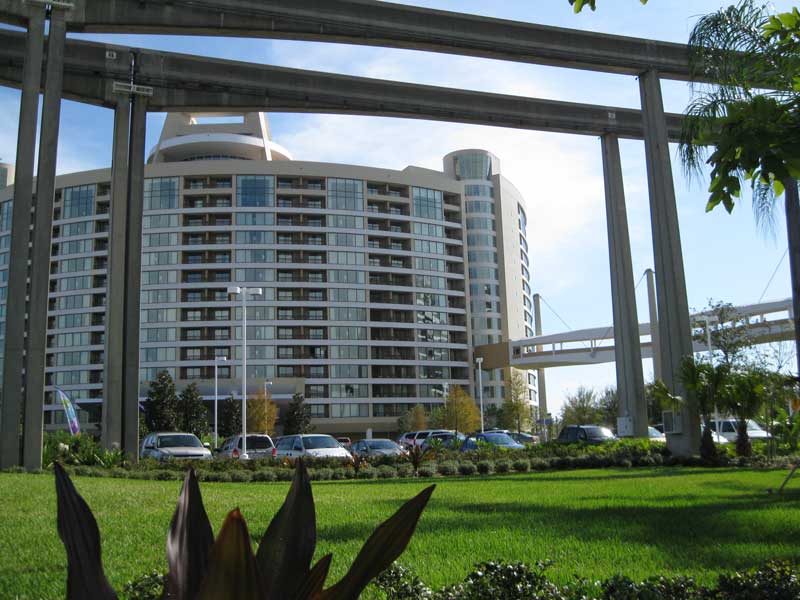A strong dollar helps Americans when buying foreign goods and when traveling overseas. But for foreign owners of the Disney Vacation Club owners, a stronger dollar is a mixed bag of good news and bad news.
{multithumb thumb_width=600 thumb_height=450 thumb_proportions=bestfit}
Bay Lake Tower at Disney's Contemporary Resort
Anyone who has followed the foreign currency markets in the last few years knows that the U.S. dollar has increased in value over most foreign currencies. Since January 2011, the U.S. dollar has risen a modest 10.4% versus the British Pound, but over 40% versus the Canadian dollar and the Japanese Yen.
The chart below shows how the U.S. dollar has fared against some foreign currencies over the last five years. The exchange rates, courtesy of Oanda.com, show what $1.00 would buy in each foreign currency. In January 2011, $1 bought less than one Canadian dollar; in 2016, a $1 buys 1.4362 in Canadian dollars.

For foreign DVC owners who bought deeds a few years ago, the stronger dollar helps if they sell their deeds. In January 2011, the base price for Bay Lake Tower at Disney’s Contemporary Resort was $120 a point, or $19,200 for a 160-point deed. A Canadian buyer, benefiting from a Canadian dollar that was worth more than the U.S. dollar at that time, actually paid only CA$19,140 for that 160-point deed.
Today, five years later, Bay Lake Tower deeds have retained their value on the resale market. The Timeshare Store has 24 of 33 Bay Lake Tower deeds listed for sale for $120 a point or more.
If an American and a Canadian could sell the 160-point Bay Lake Tower deeds that they bought five years ago, the American could break even. The Canadian, on the other hand, would receive about CA$27,575 from the sale, a gain of 44.07%. The chart below shows the increase in value that could be realized based on some foreign currencies.

But the stronger dollar works against owners who have to convert foreign currency into U.S. dollars to pay their annual dues. Since 2011, annual dues on a 160-point Bay Lake Tower deed have risen 35.7%, from $622.40 to $844.80. However, a Disney Vacation Club owner from Canada has seen his or her annual dues increase 95.5%, from CA$620.47 to CA$1,213.30. Norwegian owners have seen their annual dues more than double, to 107.2%, in the last five years.

The stronger dollar also works against foreign owners who financed their DVC purchases and are now having to pay monthly mortgage payments. For Canadian owners, a monthly mortgage that was only CA$200.00 in 2011 is now costing them an additional CA$88.20 per month.
The impact of the significant disparities between the U.S. dollar and many foreign currencies has consequences for the DVC system. Foreign owners may want to sell their deeds, either to realize a gain on their investment or to get out from under the higher annual dues or inflated mortgage amounts. Some foreign owners may also decide just to walk away from their DVC deeds, which might cause a higher number of foreclosures amongst foreigner owners.
The foreign exchange rates also put a damper on sales of new deeds to foreigners. Not only does it cost more to actually purchase a new DVC deed, but all the related expenses to a Disney trip, such as Park tickets, meals, souvenirs, and airfare, make it that much more expensive for guests from other nations to come to the United States.
Wil Lovato is a contributor to DVCNews.com and has been a Disney Vacation Club owner since 2009. His DVC Home Resorts include Bay Lake Tower, Animal Kingdom Villas, and Aulani. He can be found posting on many Disney discussion forums under the username of “wdrl”.




